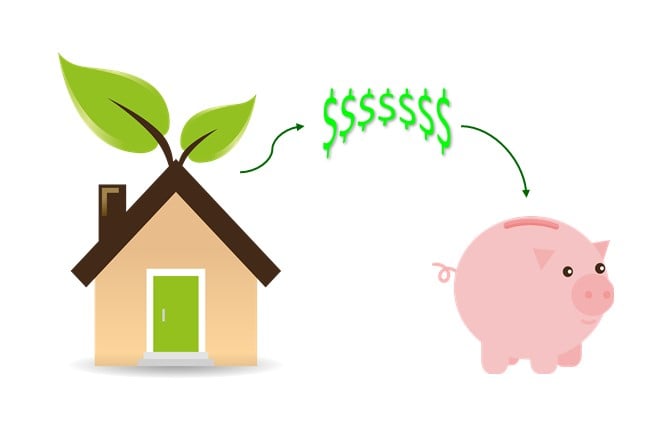With the difficult employment situation due to the coronavirus, many Americans are considering ways to obtain cash to get through the economic downturn. Credit cards and personal loans are convenient but come with high interest. Homeowners who have built up equity have additional options for obtaining cash by leveraging that equity.
One such option is home equity sharing, also known as shared equity financing or shared appreciation. Essentially, an investment company or individual (whether a friend, family member or general investor) gives you a cash loan at 0% interest. After the term of the loan (often 10 years), you repay the loan plus a percentage of the increase in your home value or the loan less the percentage of the decrease.
As a possible scenario, if you borrow $100,000, the equity sharing investor charges 50% of the home increase and your home increases by $50,000 at the end of the loan, you pay the investor $100,000 + (50% × $50,000) = $125,000. Similarly, if your home decreases by $50,000, you pay the investor $100,000 + (50% × -$50,000) = $75,000.
So what you are paying back is the original cash loan plus a percentage of the change in value of your home. In addition, you must pay for an independent appraisal of the home, and home equity sharing companies typically require charges for the loan process. If the investor is a friend or family member, you will have attorney fees (and you should consult with an attorney regardless of who the investor is).
If you sell the home before the term of the loan comes due, you might be required to pay back the loan at that time, or the agreement may survive to the next owner.
There’s no such thing as a free lunch, and home equity sharing has its advantages and drawbacks, as do all programs for pulling cash out of your home.
Article sources and further reading:
- Equity Sharing, Sirkin-Law
- Questions and Answers on Equity Sharing, Sirkin-Law
- Equity Sharing, Wikipedia
- Helping a Relative Buy a Home, Turnstone
- Home Equity Sharing Agreements: How They Work & Where to Find Them, LendEDU, Christy Rakoczy
- Shared Equity Financing: Boon to First-Time Buyers, The Washington Post, Kenneth R Harney. Family SEFAs
- This Company Unlocks Home Equity Without The Conventional Loan Obligations, Forbes, Dima Williams
- With 30 programs and counting, home-equity sharing is one way to clear a down payment hurdle, Market Watch, Andrea Riquier
Other alternative ways to leverage home equity:
- A reverse mortgage
- A HELOC (home equity line of credit)
- A cash-out refinance (a refinance of your home in which you increase the loan amount and receive the excess amount in cash)
Feel free to reach out to discuss your real estate situation with our expert real estate professionals. RJRE.
This blog post is for informational purposes and is not financial advice. The links provided are not endorsements by RJRE. Always consult with a licensed professional before making a financial decision.

